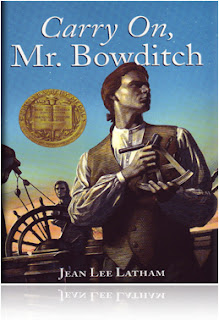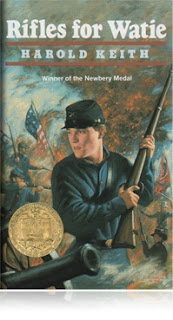While many people are able to name their favorite books or reference a generally accepted list of "classics" when asked, it is worth considering what makes a book worthy of the description. Of course, there are those classics that endure the test of time, the Bible, The Iliad, Pride and Prejudice. And there are those books that are marketed as "modern classics" like The Five People You Meet in Heaven. I'm not sure what makes a "modern classic" as I do believe that the test of time is a worthy one, but what about the books that are our personal classics? In choosing these books, I think that Italian writer, Italo Calvino presents key criteria in his book Why Read the Classics. He has 14 points by which he thinks the classics should be evaluated. Many of these are subjective and would allow a reader to choose his or her "own" classics based on these points. You can read all 14 points here but I would like to share my favorites:
- The classics are those books about which you usually hear people saying: 'I'm rereading...', never 'I'm reading...'
- The classics are those books which constitute a treasured experience for those who have read and loved them; but they remain just as rich an experience for those who reserve the chance to read them for when they are in the best condition to enjoy them.
- The classics are books which exercise a particular influence, both when they imprint themselves on our imagination as unforgettable, and when they hide in the layers of memory disguised as the individual's or the collective unconscious.
- A classic is a book which with each rereading offers as much of a sense of discovery as the first reading.
- A classic is a book which even when we read it for the first time gives the sense of rereading something we have read before.
- A classic is a book which has never exhausted all it has to say to its readers.
- Classics are books which, the more we think we know them through hearsay, the more original, unexpected, and innovative we find them when we actually read them.
- 'Your' classic is a book to which you cannot remain indifferent, and which helps you define yourself in relation or even in opposition to it.
- A classic is a work that comes before other classics; but those who have read other classics first immediately recognize its place in the genealogy of classic works.
- A classic is a work which relegates the noise of the present to the background hum, which at the same time the classics cannot exist without.
I am interested in what you think of these criteria in relationship to children's books. For my family and our many hours of reading together, I think there were a few "classics" that really stand out in my memory; books that showed us what "classic" meant when applied to stories. We all loved The Little House in the Big Woods and Ralph Moody's Little Britches is a definite classic.
For those of you who want to build a library of children's classics, it is worth looking for Newbery and Caldecott award winners. Since 1921 the Newbery has been awarded each year to recognize "the most distinguished American children's book published in the previous year." It is generally a very reliable indicator of quality content–especially for those books published between 1945-1970. Here are a few of our favorites:
For those of you who want to build a library of children's classics, it is worth looking for Newbery and Caldecott award winners. Since 1921 the Newbery has been awarded each year to recognize "the most distinguished American children's book published in the previous year." It is generally a very reliable indicator of quality content–especially for those books published between 1945-1970. Here are a few of our favorites:
The Trumpeter of Krakow by Eric P. Kelly, 1929 Newbery Medal Winner
The Forgotten Daughter by Caroline Dale Snedecker, 1934 Newbery Honor Title
Call it Courage by Armstrong Sperry, 1941 Newbery Medal Winner
Blue Willow by Doris Gates, 1941 Newbery Honor Title
The Matchlock Gun by Walter D. Edmonds, 1942 Newbery Medal Winner
George Washington's World by Genevieve Foster, 1942 Newbery Honor Title
Adam of the Road by Elizabeth Janet Gray, 1943 Newbery Medal Winner
Johnny Tremain by Esther Forbes, 1944 Newbery Medal Winner
The Hundred Dresses by Eleanor Estes, 1945 Newbery Honor Title
Abraham Lincoln's World by Genevieve Foster, 1945 Newbery Honor Title
Justin Morgan Had A Horse by Marguerite Henry, 1946 Newbery Honor Title
Misty of Chincoteague by Marguerite Henry, 1948 Newbery Honor Title
King of the Wind by Marguerite Henry, 1949 Newbery Medal Winner
Seabird by Holling Clancy Holling, 1949 Newbery Honor Title
The Door in the Wall by Marguerite de Angeli, 1950 Newbery Medal Winner
Amos Fortune, Free Man by Elizabeth Yates, 1951 Newbery Medal Winner
Minn of the Mississippi by Holling Clancy Holling, 1952 Newbery Honor Title
The Courage of Sarah Noble by Alice Dalgliesh, 1955 Newbery Honor Title
Carry on, Mr. Bowditch by Jean Lee Latham, 1956 Newbery Medal Winner
The House of Sixty Fathers by Miendert Dejong, 1957 Newbery Honor Title
Rifles for Watie by Harold Keith, 1958 Newbery Medal Winner
The Family Under the Bridge by Natalie Savage Carlson, 1959 Newbery Honor Title
Island of the Blue Dolphins by Scott O'Dell, 1961 Newbery Medal Winner
The Bronze Bow by Elizabeth George Speare, 1962 Newbery Medal Winner
The Golden Goblet by Eloise Jarvis McGraw, 1962 Newbery Honor Title
The Whipping Boy by Sid Fleischman, 1987 Newbery Medal Winner
Number the Stars by Lois Lowry, 1990 Newbery Medal Winner
Crispin, The Cross of Lead by Avi, 2003 Newbery Medal Winner
When considering Calvino's criteria for classics, what books come to your mind? What children's books? In this list of Newbery's there is a missing title that should absolutely be on it and that is To Kill a Mockingbird. What books do you think are missing? Do you disagree with the inclusion of any on this list? Later this week, I will provide a list of our favorite Caldecott Medal winners.





























Please be aware that the Caldecott is awarded for the illustrations not the text. I have read other blogs criticizing the stories in Caldecott winning books. The award is not given for the writing.
ReplyDeleteAlso, I do not understand the wariness towards more recently published books. There are many books published since 1970 which are already considered modern classics. Out of the Dust and A Single Shard immediately come to mind.
In addition to the Newbery awards, check the other awards given annually by the ALA, as well as the National Book Awards and state lists.
The Newbery Award is for children's books, generally those written for readers ages 8-12. This age group is commonly called "middle-grade" in the industry. People often refer to any children's book with chapters as a "chapter book;" however the term "chapter book" is used to describe books with chapters written with newly independent readers in mind. Examples of "chapter books" would be Geronimo Stilton and Magic Treehouse.
-- A Children's Book Author
With that said, I'd also like to add that I think your products are wonderful. I haven't purchased any yet as they don't currently fit into our homeschooling curriculum and objectives, but I have browsed through them. I wish I had discovered them earlier.
ReplyDeleteI hope the above comment did not come across as too critical. The children's publishing industry has become more defined in the last thirty years or so, and I often see misconceptions about how things work.
Interesting discussion on classics. I seldom re-read any book. There are too many books to read to bother going back to read one twice.
Hi Lillpluta,
DeleteThanks for the comment. I do know about the Caldecott being the award for illustration. There are some wonderful winners with gorgeous pictures AND great stories. Thanks for chiming in on the Newbery discussion. Yes, I do think there are some excellent winners from the post 1970s era but I am not as familiar with those. There are a few on the list above that I do know well and would consider to be classics. I do think there has also been a shift in children's literature in which the intelligence of children is not respected as it was thirty, forty, or fifty years ago. I believe that declining standards in schools are partly to blame. I do hope you're right in saying that there are contemporary books out there that do have literary qualities worthy of the title "classic". It just seems that there aren't as many as in the days of Lois Lowry, Elizabeth George Speare, Marguerite Henry, Meindert Dejong, Marguerite de Angeli, etc., I will definitely check out the two you listed! Thank you again for your contribution to the discussion. I would love to know what books you have written. It would be fun to read the writings of a reader!
All the best,
Rebecca
Currently, the children's book market is consumer driven. It's a chain. The booksellers will buy what sells to their customers. The publisher buys what the bookseller will buy. The writer will write what the publisher buys. :) Everybody needs to pay the bills, and writing and publishing is as much a business as it is an art.
DeleteLiterary and historical children's books are becoming even harder to sell, because they aren't readily bought up by the general public. This is why it's becoming a consumer driven market.
The majority of my work has been for magazine and educational markets and some work-for-hire board books. So I have nothing to recommend to you of my own ... yet. :)
Do not judge all of current children's literature by what you see at the chain bookstores. As I mentioned before, they are only going to stock the top sellers. Top selling and quality do not necessarily go hand in hand.
There are plenty of book blogs about. Here is the link to a group blog I belong to, if you'd like to take a look. http://www.fromthemixedupfiles.com/
whoops .. I forgot to add that the slashing of school and library budgets is definitely impacting what is bought and sold when it comes to children's books. Instead of schools and libraries doing the major purchasing -- consumers are. The majority of consumers will buy what is popular.
DeleteFashions change in children's books, the same way they do in clothing, cars, music, styles of houses, etc. Nothing looks quite the way it used to. Society has changed, and our language has changed along with it.
If a children's book author continued to write in the style of 50-60+ years ago, she would have great difficulty being able to sell her work in the same way a seamstress might have a hard time making a living if she insisted on only making hoop skirts.
I am not sure if it is a newberry award winner, but I loved "Old Yeller". I have read it countless times and I absolutely love it.
ReplyDeleteMarge
Great suggestion Marge! Old Yeller is a definite classic and one that resonates deeply with so many. Thanks for the comment.
Delete-Rebecca
We are fantasy fiction fans in our home and so we have a great love for The Lord of the Rings trilogy, The Hobbit, The Book of Three series and Wrinkle in Time and Chronicles of Narnia. Several others I am sure if I sit and think about it more. I consider the Harry Potter books to be a modern classic, I feel it fits quite a bit of the description above. Though it is probably still a bit controversial with some people. I am always rereading them and enjoy them so much.
ReplyDelete